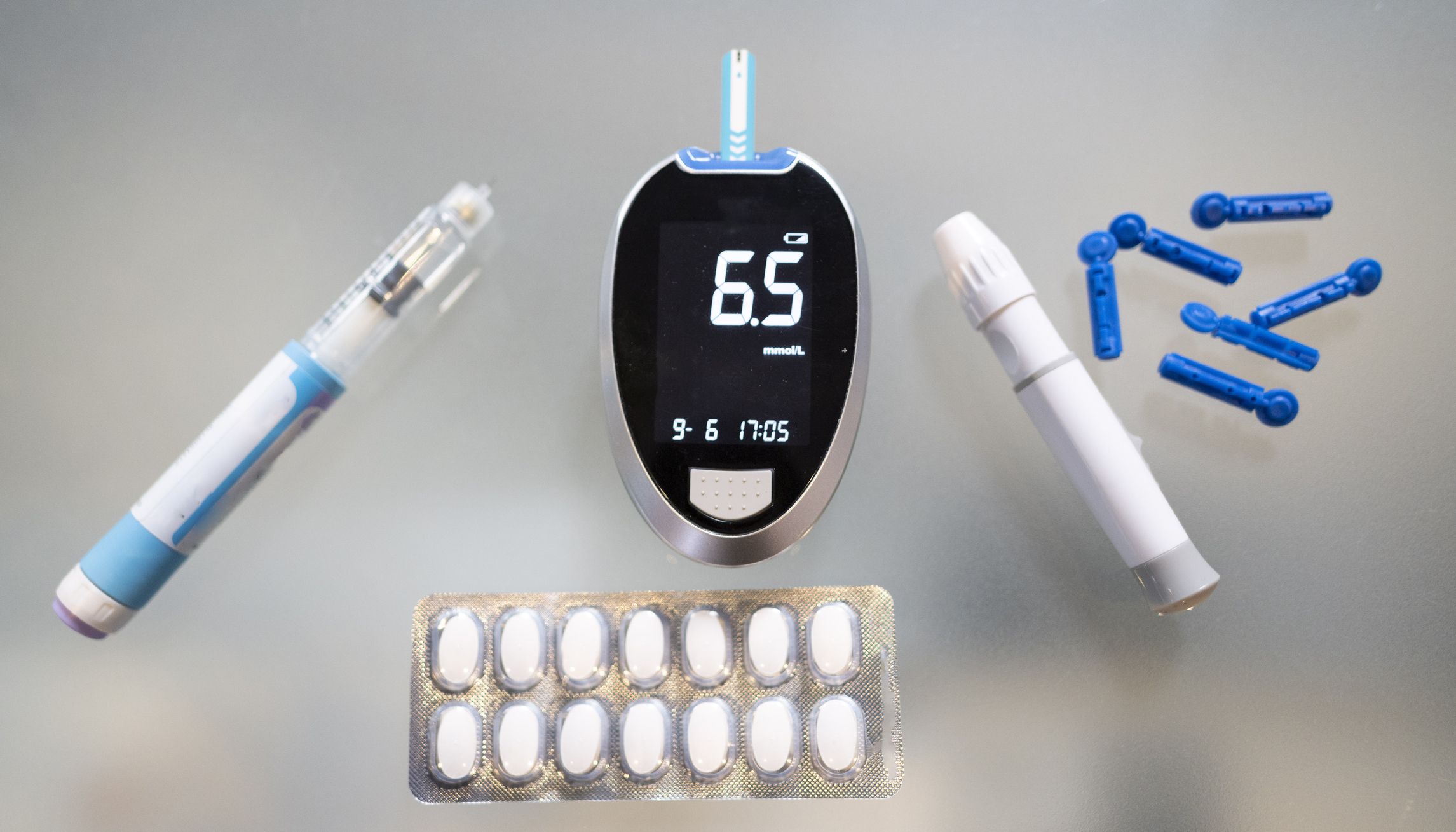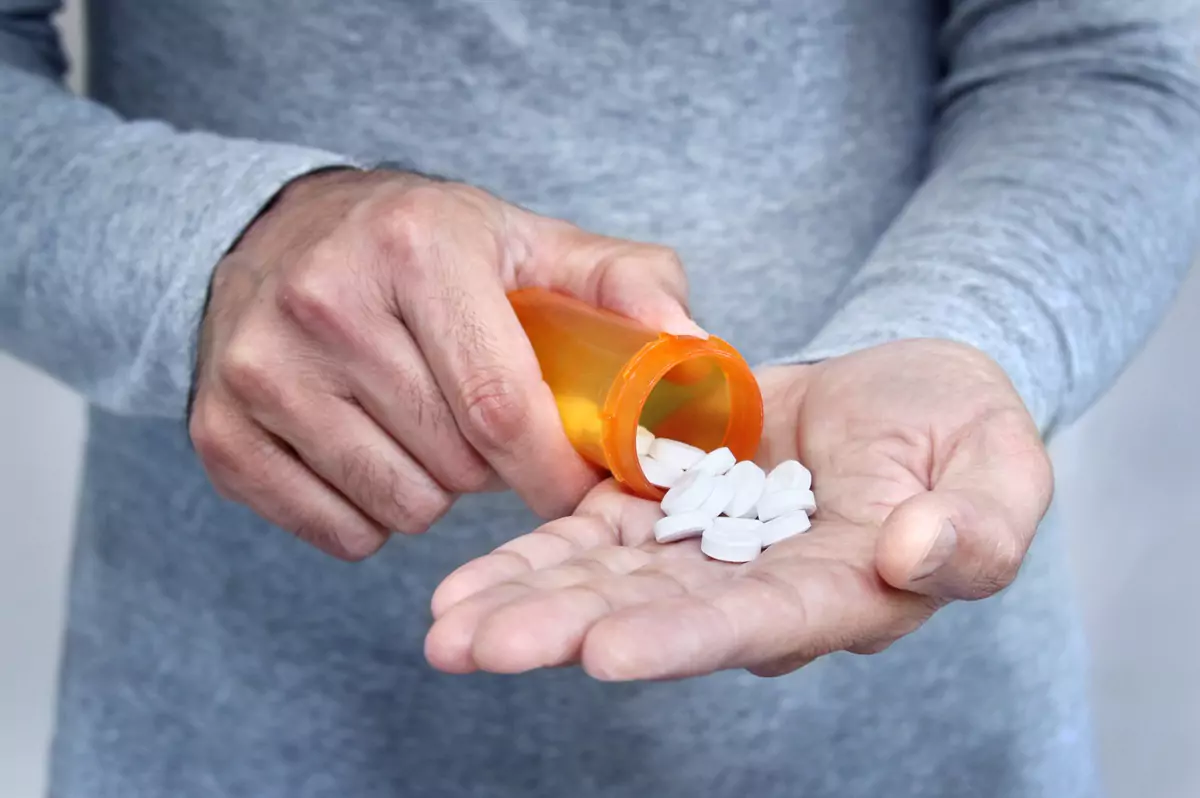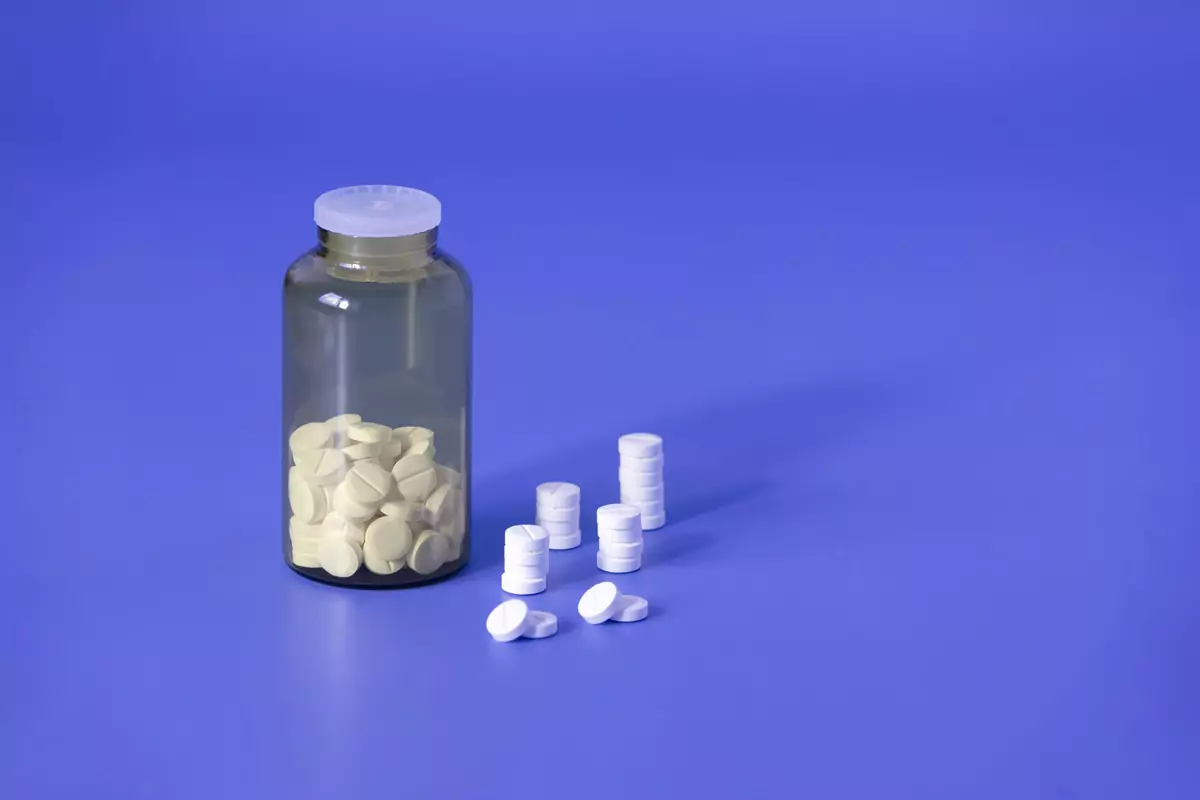
UP TO 40% OFF SITEWIDE






Diabetes & Oral Medication Types: How They Work


Table of Contents
- The Role of Oral Medications in Insulin Regulation
- The Significance of Oral Medications in Diabetes Management
- Types of Diabetes Oral Medication
- Metformin (Biguanides)
- Sulfonylureas
- Meglitinides
- Thiazolidinediones (TZDs)
- DPP-4 inhibitors
- SGLT2 Inhibitors
- Side Effects and Precautions
- Hypoglycemia
- Weight Gain
- Gastrointestinal Issues
- Kidney Complications
- Precautions and Guidelines for Using Oral Diabetes Medication
- Adherence to Medication
- Regular Monitoring
- Lifestyle Modifications
- Conclusion
- FAQs
- What is the first-line oral medication for diabetes?
- Can I stop taking diabetes medication if my blood sugar levels are under control?
- Are there any natural alternatives to diabetes medication?
- Do all diabetes medications cause weight gain?
- Are oral medications effective for all types of diabetes?
- About The Author
Oral medications are at the forefront of Type 2 diabetes management, providing an effective alternative for those who prefer to avoid daily insulin injections. However, it's crucial to clarify that oral medications aren't a replacement for insulin.
Instead they serve as a strategic tool to regulate the body's insulin levels and overall blood glucose management. They work in tandem with the body's existing metabolic systems, augmenting, enhancing and fine-tuning the process to maintain optimal blood glucose levels.
The Role of Oral Medications in Insulin Regulation
Different classes of oral diabetes medications exert their effects on the body's insulin regulation in different ways. Some are designed to stimulate the pancreas, prompting it to produce more insulin. As we know, insulin is the hormone responsible for shuttling glucose from our blood into our cells.
Therefore, a boost in insulin production can help lower blood glucose levels. Other oral medications focus on improving insulin utilization. They increase the sensitivity of body cells to insulin, allowing more glucose to enter the cells and reducing the amount of glucose in the bloodstream.
These medications are particularly useful for individuals with insulin resistance, a hallmark of Type 2 diabetes, where the body's cells become less responsive to insulin. Still, other types of oral medications concentrate on reducing glucose production. They inhibit the liver's production of glucose, thus decreasing the total amount of glucose that ends up in the bloodstream.
The liver plays a vital role in maintaining blood glucose levels by producing and releasing glucose. By controlling this process these medications contribute to better overall blood glucose management.
The Significance of Oral Medications in Diabetes Management
Oral medications have radically transformed the landscape of diabetes management. Their ease of use and convenience significantly increase treatment adherence which is crucial for effectively managing chronic conditions like diabetes. The simplicity of swallowing a pill, compared to the routine of preparing and administering insulin injections, makes a significant difference in a person's willingness to stick to their treatment plan.
However, while oral medications offer convenience and efficacy they are not a magic bullet for diabetes. Managing diabetes effectively requires a comprehensive approach that goes beyond medication. Oral medications are a part of the puzzle, but they need to be coupled with lifestyle modifications to achieve the best results.
A healthy lifestyle that includes regular exercise, a balanced diet, adequate sleep and stress management is pivotal in diabetes control. Regular physical activity helps lower blood glucose levels and improve insulin sensitivity. A balanced diet rich in whole grains, lean proteins, fruits and vegetables provides the necessary nutrients without causing sudden spikes in blood sugar.
Adequate sleep and stress management are also essential as both poor sleep and high stress levels can negatively impact blood sugar control. In conclusion, while oral medications play an integral role in managing diabetes, it's important to remember that they are part of a broader, comprehensive approach to diabetes management.
They work best when combined with a healthy lifestyle and regular monitoring of blood glucose levels. As always, it's essential to maintain open communication with your healthcare provider and discuss any concerns or issues you may encounter in your diabetes management journey. This proactive approach will help ensure the best possible outcomes in your fight against diabetes.
Types of Diabetes Oral Medication
Metformin (Biguanides)
Without a doubt, metformin, belonging to a class of medications known as biguanides, reigns as one of the most widely prescribed oral diabetes medications worldwide. Its enduring popularity can be attributed to its potent efficacy in regulating blood sugar levels, a favorable side effect profile and its affordable cost, making it accessible to a vast majority of diabetes patients.
At its core, metformin acts as a formidable warrior in the battle against diabetes through two primary mechanisms. The first revolves around the suppression of glucose production in the liver. Under normal circumstances the liver plays a critical role in maintaining blood glucose levels by producing and releasing glucose into the bloodstream.
However, in the context of type 2 diabetes, this process becomes dysregulated, leading to excessive glucose production. Metformin steps in and acts like a diligent gatekeeper, reducing this overproduction and thereby decreasing the amount of glucose that enters the bloodstream. The second mechanism is aimed at improving insulin sensitivity in peripheral tissues, primarily muscle and fat cells.
Essentially, this means that metformin assists the body's tissues in responding more efficiently to the insulin already present, allowing for better uptake and utilization of glucose. This combined action on both the liver and peripheral tissues allows for a more holistic approach to blood glucose management which has led to metformin's continued prominence in diabetes care.
Sulfonylureas
Sulfonylureas, a different class of oral diabetes medications, bring their unique mechanism to bear in the fight against diabetes. Unlike metformin, sulfonylureas take a more direct approach, targeting the pancreas the organ responsible for insulin production. They act like a motivational speaker, encouraging the beta cells located within the pancreas to step up their game and release more insulin.
Understandably, this increased production of insulin has a profound effect on blood glucose control. Insulin, often referred to as the 'key' in diabetes management, enables the cells in our bodies to take in glucose and utilize it for energy.
By stimulating beta cells to produce more insulin, sulfonylureas effectively increase the number of 'keys' available to unlock cells and let glucose in thereby reducing the glucose concentration in the bloodstream. Sulfonylureas have been used in the management of diabetes for decades and have proven themselves to be highly effective in lowering blood sugar levels.
They can be used on their own or in combination with other medications to enhance glycemic control. However, like all medications they come with potential side effects and risks the most significant being hypoglycemia or low blood sugar, a consequence of their potent insulin-releasing effect.
Meglitinides
Representing a different class of medication used for managing diabetes, Meglitinides bear a structural similarity to sulfonylureas, but their method of function and pharmacokinetic properties set them apart. The common goal shared by both drug classes is the same - to encourage the pancreas to produce more insulin, a hormone crucial for the body's glucose regulation.
Meglitinides, sometimes referred to as "short-acting secretagogues," are characterized by their quick action onset and a comparatively shorter duration of action. They effectively stimulate insulin secretion from the beta cells of the pancreas. The secreted insulin helps in the transportation of glucose from the bloodstream into the body's cells thereby reducing the overall blood glucose levels. This class of drugs includes repaglinide (Prandin) and nateglinide (Starlix).
They are usually administered before meals, aiding in achieving better postprandial (post-meal) blood glucose control. This timing is essential due to the rapid onset and short duration of action that meglitinides have. The upside is that their faster action reduces the risk of hypoglycemia (low blood sugar), a common concern among people with diabetes.
However, like any medication, meglitinides do have potential side effects, such as weight gain and hypoglycemia, although the latter is less common than with sulfonylureas. It is important for individuals on these medications to monitor their blood sugar levels regularly and report any concerns to their healthcare provider.
Thiazolidinediones (TZDs)
TZDs, on the other hand, take a distinct approach to managing diabetes. Unlike meglitinides which stimulate insulin production, TZDs work by reducing insulin resistance, a key problem in type 2 diabetes where the body's cells become less responsive to insulin. TZDs, also known as "glitazones," include rosiglitazone (Avandia) and pioglitazone (Actos).
They operate by binding to PPAR-gamma, a type of nuclear regulatory protein found in fat tissue. Upon activation, this protein modulates several genes that improve insulin sensitivity thereby enhancing the body's ability to use insulin more effectively.
The primary outcome of this process is a decreased insulin resistance, leading to a reduction in the liver's glucose production and an increase in glucose uptake by muscle and fat tissues. Consequently, this results in a drop in blood glucose levels which is the ultimate goal for managing diabetes. These medications can be used alone, but they are often combined with other oral antidiabetic drugs or insulin for a more robust approach to glucose control.
The reason behind this is the complimentary nature of these medications - while TZDs work to improve insulin sensitivity, other drugs can simultaneously address different issues like inadequate insulin production or excessive glucose production. Similar to meglitinides, TZDs are not without potential side effects.
They can cause weight gain, fluid retention and an increased risk of heart failure. Moreover their long-term use has been associated with a slight increase in the risk of bone fractures. Therefore, it is of paramount importance that individuals taking these medications do so under the close supervision of their healthcare providers.
DPP-4 inhibitors
Dipeptidyl peptidase-4 (DPP-4) inhibitors have emerged as a class of oral medications that are used extensively to manage Type 2 diabetes. These medications work by targeting the DPP-4 enzyme, hence the name. Under normal circumstances the DPP-4 enzyme breaks down hormones called incretins. Incretins, especially one type known as GLP-1 (glucagon-like peptide-1), play a pivotal role in managing post-meal spikes in blood glucose.
They stimulate the pancreas to produce more insulin, a hormone that helps cells absorb glucose from the blood and simultaneously slow the rate at which the liver produces glucose. When people have Type 2 diabetes, however the DPP-4 enzyme breaks down incretins more rapidly, leading to insufficient insulin and elevated blood glucose levels.
This is where DPP-4 inhibitors step in. By inhibiting, or blocking the DPP-4 enzyme these drugs extend the life and effectiveness of incretins. As a result the body is able to produce more insulin and decrease excess glucose production, aiding in the regulation of blood sugar levels.
Examples of DPP-4 inhibitors include sitagliptin (Januvia), saxagliptin (Onglyza) and linagliptin (Tradjenta). While these medications have been proven effective, it's important for patients to understand that they are most effective when used in conjunction with a balanced diet and regular exercise.
SGLT2 Inhibitors
Sodium-glucose co-transporter-2 (SGLT2) inhibitors are another class of oral antidiabetic drugs that function in a unique way to control blood sugar levels in individuals with Type 2 diabetes. Unlike many diabetes medications that work on processes within the pancreas or liver, SGLT2 inhibitors target the kidneys.
Here's how they work: In healthy individuals the kidneys filter glucose (sugar) out of the blood and then reabsorb it back into the bloodstream. This glucose reabsorption is largely facilitated by proteins called SGLT2. In people with Type 2 diabetes, this reabsorption process is overactive, causing more glucose to be reabsorbed and leading to high blood sugar levels. SGLT2 inhibitors address this issue by blocking the SGLT2 proteins.
This inhibition prevents the kidneys from reabsorbing glucose back into the blood. Instead the excess glucose is eliminated from the body through urine thereby helping to reduce blood glucose levels. Some commonly prescribed SGLT2 inhibitors include canagliflozin (Invokana), dapagliflozin (Farxiga) and empagliflozin (Jardiance).
As with any medication, SGLT2 inhibitors should be taken as part of a comprehensive diabetes management plan that includes healthy eating, regular physical activity and routine blood glucose monitoring. It's also important to note that while SGLT2 inhibitors are an effective treatment option they are not suitable for everyone and should be prescribed under careful consideration of the individual's overall health and lifestyle.
These deep dives into DPP-4 and SGLT2 inhibitors highlight the intricacies of diabetes management and the array of options available. As we understand more about how the body regulates blood sugar, we can expect the development of even more targeted treatments for this pervasive condition.
Side Effects and Precautions
When it comes to managing diabetes, understanding potential side effects and precautions associated with oral medications is as critical as knowing how these drugs function. Misinformation or lack of knowledge can lead to unintentional misuse or neglect of medications, impacting overall health outcomes.
Like any medication, oral diabetes drugs can trigger a range of side effects, with varying degrees of severity. It's essential to be aware of these potential side effects to ensure a proactive approach to your healthcare management.
Hypoglycemia
Oral medications, especially Sulfonylureas and Meglitinides, can sometimes cause hypoglycemia, a condition where blood sugar levels drop below normal. This can lead to symptoms like confusion, dizziness, sweating and even fainting. In severe cases, hypoglycemia can be life-threatening, underscoring the importance of monitoring your blood sugar levels regularly.
Weight Gain
Weight gain is another common side effect associated with some oral diabetes medications, such as Sulfonylureas, TZDs and Meglitinides. It can be a significant concern as excessive weight can further complicate diabetes management and escalate the risk of other health issues, including heart diseases. Regular exercise and a balanced diet can help counter this side effect.
Gastrointestinal Issues
Drugs like Metformin can often cause gastrointestinal problems, such as nausea, vomiting and diarrhea. Usually these symptoms improve over time, but if they persist, it's important to inform your healthcare provider.
Kidney Complications
Certain medications, like SGLT2 inhibitors, while beneficial in controlling blood sugar, can pose a risk to kidney health if not appropriately managed. Regular kidney function tests should be part of your healthcare routine when on these medications.
Precautions and Guidelines for Using Oral Diabetes Medication
Managing diabetes goes beyond simply popping a pill. It's about integrating these medications into a comprehensive care plan that addresses your unique health needs and lifestyle considerations.
Adherence to Medication
Always take your medication as directed by your healthcare provider. Don't adjust the dosage or timing without consulting with them first, as this could disrupt your blood sugar control.
Regular Monitoring
Regular monitoring of blood glucose levels is crucial, providing insight into how well your medication and lifestyle changes are working to manage your diabetes. It can also help detect hypoglycemia or hyperglycemia early, allowing for timely interventions.
Lifestyle Modifications
Remember, medication is just one part of your diabetes management plan. Regular exercise, a balanced diet and maintaining a healthy weight are equally vital. Be sure to discuss any lifestyle changes with your healthcare provider to understand their impact on your diabetes management.
Conclusion
Diabetes, a pervasive and escalating health concern worldwide, can indeed be effectively managed with the help of various oral medications. However the key to successful diabetes management lies in understanding the types of oral drugs their workings, potential side effects and the precautions necessary while taking them. Being well-informed enables you to become an active participant in your healthcare journey rather than a passive recipient.
As always, consult with your healthcare provider to determine the best treatment plan for you, one that takes into account your overall health, lifestyle and personal preferences. Remember, you are at the heart of your diabetes care team and your active involvement can significantly impact your health outcomes.
FAQs
What is the first-line oral medication for diabetes?
Metformin is usually the first-line treatment for Type 2 diabetes.
Can I stop taking diabetes medication if my blood sugar levels are under control?
Diabetes is a chronic illness and even if your blood sugar levels are under control, you should never stop your medication without consulting your healthcare provider.
Are there any natural alternatives to diabetes medication?
While there's ongoing research into natural alternatives, currently there's no substitute for prescribed diabetes medication. Regular exercise, a balanced diet and a healthy lifestyle can complement your medication regimen.
Do all diabetes medications cause weight gain?
Not all diabetes medications cause weight gain. Some may cause weight loss or have a neutral effect. It's best to discuss this with your healthcare provider.
Are oral medications effective for all types of diabetes?
Oral medications are typically used for managing Type 2 diabetes. Insulin therapy is usually necessary for Type 1 diabetes, although some oral medications may also be used as part of the treatment plan.
About The Author
Meet Dr. Ahmet Ergin a highly skilled and dedicated endocrinologist with a passion for diabetes care. Dr. Ergin earned his medical degree with honors from Marmara University in Istanbul. He completed internal medicine residency and endocrinology fellowship at Cleveland Clinic.
Dr. Ergin is board-certified in Internal Medicine, Endocrinology, Diabetes and Metabolism due to his vast medical expertise. He's a certified diabetes educator, author of "The Ultimate Diabetes Book," and founder of "the SugarMD YouTube channel."
Dr. Ergin offers exceptional diabetes care to his patients in Port Saint Lucie, FL, helping them manage effectively. Disclaimer: These statements have not been evaluated by the Food and Drug Administration. Information on this website isn’t intended to treat, cure or prevent any disease. Discuss with your doctor and do not self-treat.
Written By Dr. Ahmet Ergin
465 total articles
Meet Dr. Ahmet Ergin, a highly skilled and dedicated endocrinologist with a passion for diabetes care. Dr. Ergin earned his medical degree with honors from Marmara University in Istanbul. He completed internal medicine residency and endocrinology fellowship at Cleveland Clinic. Dr. Ergin is board-certified in Internal Medicine, Endocrinology, Diabetes, and Metabolism due to his vast medical expertise. He's a certified diabetes educator, author of “The Ultimate Diabetes Book,” and founder of “the SugarMD YouTube channel.” Dr. Ergin offers exceptional diabetes care to his patients in Port Saint Lucie, FL, helping them manage effectively. For a closer look into his insights and experiences, connect with Dr. Ahmet Ergin on LinkedIn, Instagram, and YouTube.”
Disclaimer: These statements have not been evaluated by the Food and Drug Administration. Information on this website isn't intended to treat, cure or prevent any disease. Discuss with your doctor and do not self-treat.
Products













